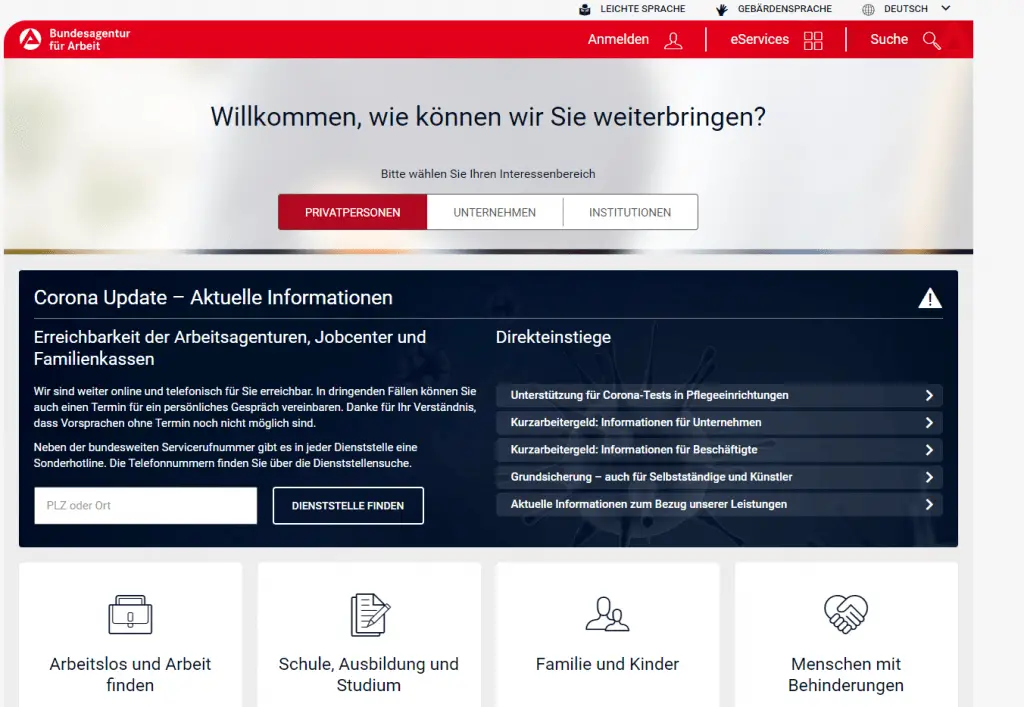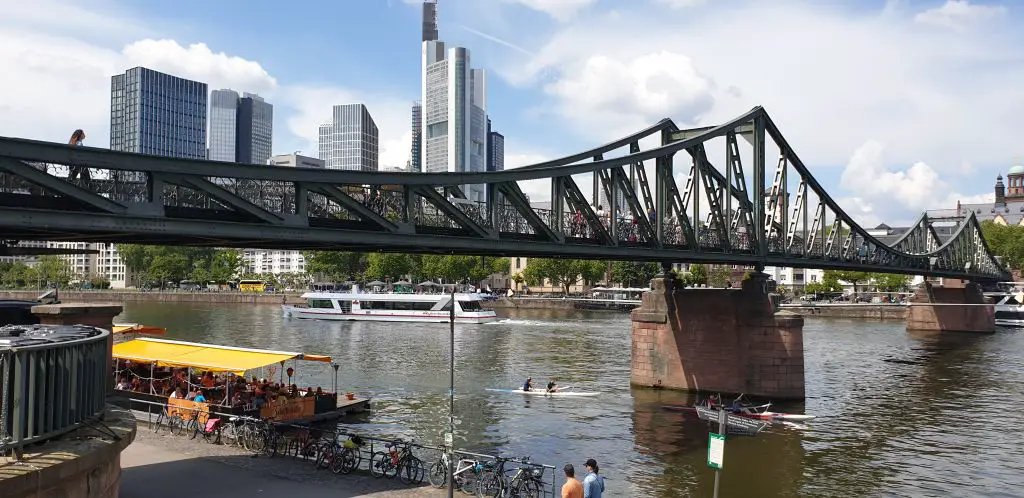Living in Germany as an expat has been a very rewarding experience. Quality of life is quite high and I’ve had many positive experiences as you can read about all the reasons why I love living in Frankfurt.
Life is not all roses however. There are things, as you’d expect with living in any country, that annoy me. This list contains the things that annoy me in particular about Germany. They are by no means deal breakers (like excessive racism or something) because I view them as just small first world problems, but you can’t help but think about them nonetheless!
Paying For Tap Water
Nothing in the world angers me more than having to pay for water in a country where the water is perfectly drinkable from the tap. Germany, as you’d expect from an developed European nation has perfectly drinkable tap water. In fact, I would even consider it tasty at times.

Even though one of the mandates of the United Nations is to have drinkable water for every nation, this is simply not the case for huge chunks of the world. I have no qualms with paying for bottled water in a country where the infrastructure doesn’t support safe tap water. However, this is simply not the case in Germany.
At restaurants and bars in Frankfurt, they simply will not serve tap water. I’ve asked numerous times why not and the answer is always that it’s not safe. I respond with I live on the same street and drink tap water all the time. Of course, this is just an excuse to say we’d rather charge you money for water because we also know the tap water is perfectly safe to drink. Bottled water isn’t cheap either. Regular restaurants charge €3-5 a bottle and fancier places can be up to €10 for a liter of water! It’s a bit outrageous and even more frustrating that Germans as a whole think it’s totally acceptable to pay this much for water.
Of course, sparkling water is another story and I’m okay paying for that but we won’t get into that one.
No Kitchens, Closets, or Lights In Apartments
The one thing that will universally baffle all non Germans moving to Germany will be the amenities included when you rent an apartment.
In Germany, many of the apartments do not come with a kitchen. Yes I’m not joking. There is NO kitchen in many of the apartments because you are expected to build your own. I’m not talking about a refrigerator or a laundry machine, I’m talking about everything. There is no sink, no cabinets, no stove, no fridge, no nothing. Literally it’s just a completely empty room that you will have to furnish.
I thought it was a joke when I first moved to Germany but sadly it is not. Germans actually somehow someway think it’s a good idea for people to build their own kitchens when they move into an apartment. Not only will you have to bear the cost of buying a kitchen, but if you don’t know how to construct a kitchen (because why in the world would anyone have to know this?), you’ll have to pay for workers too. This will easily cost many thousands of Euros and this is assuming you can even get the parts of a kitchen delivered in a respectable time.
You’re probably asking what happens to the kitchen when you leave? You can’t simply bring your kitchen to a new apartment because it’s not like the spacing will be exactly the same. Yes you’re right, it is ridiculous!
Thankfully, most landlords will allow you to sell your kitchen to the next tenant. If you run into a really terrible old school landlord that won’t let you do this, then you are out of luck and will have to pay someone to disassemble it too.
The way around this is to rent an apartment where an existing tenant already living there has a kitchen. They can sell it to you so you don’t have to deal with that nonsense. Thankfully, all of the young Germans I’ve talked to also think this is the most stupid and ridiculous cultural concept of all time so perhaps it will change in a few decades once the older generation moves on.
The same applies for all ceiling lights and closets. Closets are not a thing in Germany so everyone needs to build their own wardrobe from scratch. If you visit Ikea in Germany, there is a huge section dedicated to wardrobes that you won’t find in other countries.
Using Cash as a way of life

To my surprise, and probably the surprise of many other expats, cash reigns supreme in Germany. Germany is perhaps the least financially developed, developed nation in the world. The majority of citizens even in the 2020s prefer to use cash over other methods. In Germany, many of the restaurants and shops are cash only. Some will accept debit cards (not credit), but most just take cash. Festivals and markets all over the country are also cash only.
Living in Frankfurt, more and more shops are taking credit cards these days because well, a big city like Frankfurt knows it needs to join the rest of the modern day world and realize cash is trash. However, if you go to the villages nearby, expect to pay in cash only.
As soon as you leave Germany, literally every other country in Europe is ready to welcome you with credit card readers. Only in Germany, do I constantly visit the ATMs to take out cash. The worst part is the Euro coins, which have no place in my wallet and are constantly lost.
People are quite conservative with finances and you’ll rarely meet many Germans that invest any of their money (no FIRE for Germans I suppose). In fact, I think it’s not uncommon for people to just hoard cash in their houses because they are worried that even the banks will fail them and lose their money. As far as travel hacking and credit card points in Germany? Don’t even think about it.
The German mail system is the biggest part of your life
As soon as you move to Germany, you’ll realize that your entire life revolves around paper mail and paper documents. Germans refuse to go digital in an unescapable digital age. All your important documents are done by physical paper and most of it is done via mail.
Back home in the US, mail was only used for obtaining new credit cards because of travel hacking, and junk advertisements. I really only checked the mail when I knew a new credit card was coming. Otherwise, I’d check it every few weeks and throw out most of it. I do remember a time back in my childhood in the 90s where I would wait for the mailman to deliver mail to my parents but I think we’ve made a lot of technological progress in 20 years.
In Germany, you will not last long with this lifestyle. Literally everything is done by the mail. Want your debit card when you open a new bank account right away? No, you need to wait for it to come in the mail.
Want to register for online banking via the internet? No, you need to wait for your security pin BY MAIL.
I don’t have anything against the mail system, I just think there’s no point to use the mail system for things that can clearly be done digitally. Not only is this more convenient, but it’s many times faster than waiting for a letter. Nevertheless, one of the things that I dislike about Germany for sure.
Cigarette Smoking In Germany
Prior to moving to Europe, I always pegged the French and Italians as the big smoking cultures of the continent. However, Germany is right up there if not even more so.

Smoking is very common in Germany. In fact, I may even argue that Germany smokes the most of the Western European nations. If not, then they definitely smoke the most in public spaces.
One of the things I love most about Germany is the outdoor dining and drinking culture. Life happens outside and people will brave the elements to have a beer outside. Expect to always be greeted with people smoking however. Restaurants and bars allow smoking outside on the premise. Some bars still even allow smoking indoors. I don’t know why Germany is so obsessed with cigarettes but it is disgusting. I’ve come to accept that I’m always going to second hand inhale some smoke when dining outdoor but I definitely don’t enjoy it.
Smoking is quite popular among the young population too which is shocking to me.
All the stores are closed on Sundays
I think everyone, Germans and non Germans alike can relate to this one. All the shops in Germany are closed on Sundays. This includes grocery stores, department stores, hardware stores, clothing stores, etc. I guess Germany wants to keep Sundays as a day meant for Church and relaxation? I’m not sure.
I always used Sundays to catch up on errands like grocery shopping but myself and everyone else in the country scrambles to get it all done on Saturdays. Takes some getting used to and still annoys me.
Thankfully, restaurants and bars are open so Sunday Fundays are possible.
Lack of English spoken for Bureaucracy
Make no mistake that German is the main language in Germany. It’s not like Luxembourg or the Netherlands where people don’t really expect you to speak the national language and there’s nothing wrong with that in my opinion.
Germany is home to foreigners from all over the world. Plenty of people from around Europe and outside of Europe come here to work and live. With this in mind, this means the inevitable copious amounts of bureaucracy to meddle through. With this in mind, you would think some of these bureaucratic processes would have people that are okay with speaking English but this is not the case. Even worse, it’s not that the people on the other line can’t speak English, they just actively choose or are told not to use it.

It’s incredibly frustrating. Whether it’s to call the Internet company to set up your home internet, car insurance, or a question about banking, it’s always a 50/50 chance whether the person on the other line can/is willing to speak English. I understand Germans are very proud of their language and they want to ensure settlers learn their language, but come on…
Inside the box thinking
The culture in Germany has always been known to be more of a take the safe, well traveled road. I think perhaps that’s why Germany’s economy has always been so strong, even after WW2 in that people here work hard, stick to the books, and rarely deviate from the tried and true.
This works for a slow and steady growth but stifles innovation. I don’t feel that German culture prides itself on coming up with grand new ideas and “disrupting” industries. I think the mentality here is, look life is good we have what we need already so why mess with a good thing?
Berlin is becoming a hotspot for tech startups these days but for how advanced of a country Germany is, it does not hold a half a candle to say Silicon Valley. If you’re moving to Germany to work, be prepared for an office setting where people don’t generally take risks or voice what could be potentially good ideas out of fear that it deviates too much from the norm. It’s very much an inside the box thinking type of culture, although not to the likes of say Japan. Maybe a Japan-lite?
During the Coronavirus pandemic, closing down schools was a huge point of contention. While no one in the scientific community would argue that schools lead to sustained increases in cases, the German Government and school system could never figure out how to bring the education system into the 21st century. While schools in the US went full remote at the very beginning of the pandemic via Zoom, Teams, etc, Germany barely was able to give laptops to teachers. Teachers continued through 2020 with limited access or really the knowledge to operate remote classes.
The result? Constant open and closing of schools based on case counts and a disservice to the kids. It is 2021. Any teacher that can’t or won’t embrace technology needs to just retire because the world has left them behind.
All in all, this is probably why so many essential processes in Germany are antiquated with change coming at snail’s pace. German innovation started and stopped with cars.
Life is still good though
I hope this post did not scare off any would be German expats. I’ve listed these grievances to many people, German and non German, and every time we’ve come to the same conclusion that life must be damn good if these are my biggest dislikes.

In the end, none of these things are remotely deal-break type of things. Quality of life in Germany is high and the Government has many policies that protect this balance.









Add “awful, slow-yet-expensive” Internet to the list, and it’s a perfect list. In general, I can’t believe how long everything takes in this country. The idea of customer service is a foreign concept here, for sure.
Yes definitely Re the internet! And the mobile coverage. The bureaucracy is painstaking for sure